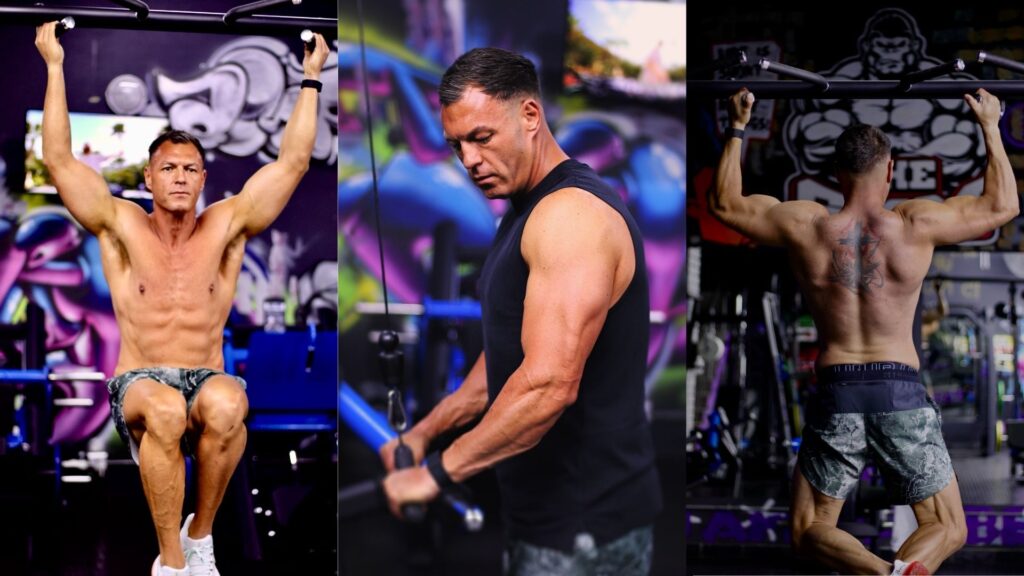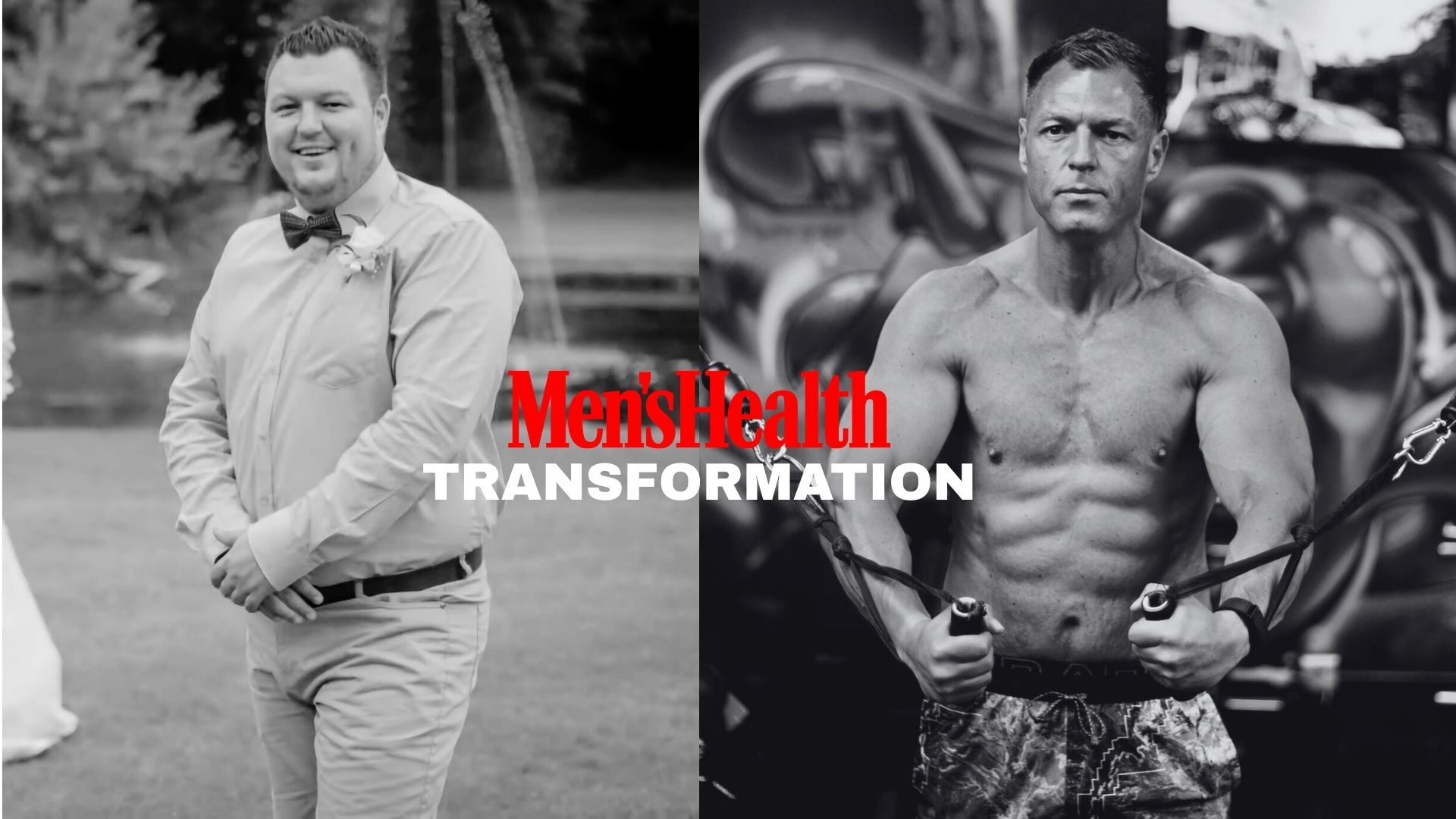Across Nigeria and the wider West African region, stories of dramatic weight loss often inspire healthy conversations at work, at gyms, and even in local markets. Achieving a transformation as remarkable as shedding 38kg comes with its own set of challenges, especially in cultures where hearty foods and busy lifestyles can easily lead people to neglect their health. Yet, Rudi Heerschop’s experience—his journey from an overwhelmed professional to a role model of dedication—represents a shift that resonates far beyond his home in South Africa. For many Nigerians juggling demanding careers and family responsibilities, Heerschop’s disciplined approach sparks the question: what does it really take to reclaim your health and energy, even if you feel you’ve left it too late?
The notion that it’s “never too late” to redefine your body and mindset is a sentiment often echoed by experts in Lagos, Accra, and throughout West Africa. Consider the case of Heerschop, an attorney and wealth strategist, who achieved what some consider impossible in just two years—a massive loss of 38kg. Sharing his story with South African media, Heerschop reportedly noted, “I have an extremely addictive personality. At one point, losing weight became an obsession.” While his resolve stands out, he emphasised that his achievements stemmed mainly from consistency and a well-structured plan. These are lessons that align with advice from health practitioners across Nigeria, who frequently urge patients to take small, practical steps rather than relying on quick fixes or gimmicks.
In much of West Africa, body image is entwined with local perceptions of what it means to be healthy and successful. Heerschop, like many African men, grew up associating a larger physique with strength and status. “I never thought I was fat,” he reportedly explained. “I’ve always been a bigger oke. So, for me, and the people close to me, I wasn’t fat… I was big.” This viewpoint is a familiar echo across Nigeria, where men often don’t acknowledge their weight until it begins to affect their ability to participate in everyday activities. For Heerschop, the reality check came on a beach day when his own son wanted to play ball, but fatigue robbed him of that joyful interaction. “That hit me squarely between the eyes,” he shared, describing the moment he realised something had to change. For him—and for many African fathers—being present for family became a non-negotiable motivation to overhaul his lifestyle.
While Heerschop’s initial focus was squarely on his career and business growth, his turning point mirrored similar experiences shared by Nigerian parents, who often cite a desire to remain active role models for their children as motivation to lose weight. That call to action—choosing to be a “better man” at home and in the workplace—can be especially powerful in communities where parental involvement is closely linked to children’s future wellbeing, according to psychologists such as Dr. Chukwuma Ejiofor, a Lagos-based family therapist. Dr. Ejiofor noted, “Many men only truly reconsider their health when their everyday activities or family time are affected. It’s rarely about appearances alone; it’s about the roles they value most.”

Setting achievable targets is a strategy recommended by many fitness coaches from Lagos to Johannesburg, and Heerschop’s path followed that philosophy. His initial goal: drop below 100kg. Breaking his journey into phases, he began by giving up alcohol during the week, a move which many Nigerian and Ghanaian fitness enthusiasts applaud given the popularity of social drinking in metro cities like Abuja and Accra. Heerschop also partnered with his business associate, Mark Pienaar, using camaraderie to boost motivation—an approach mirrored by local ‘fitfam’ groups sprouting up in Nigerian cities, where accountability partners make all the difference. Hitting the weights together on a strict schedule, the two marked progress with shared milestones. Within a year, Heerschop was already down 20kg.
With his first target demolished, he raised the bar. To accelerate progress, Heerschop and Pienaar hired a personal trainer, George Herwill, who redesigned Heerschop’s menu to focus on high-protein, low-carb meals. Nutritionists based in Lagos, such as Yewande Adepoju, explain that such meal plans can be locally adapted. “For Nigerians looking to cut carbs, traditional meals like moi moi, grilled fish, or ayamase with measured quantities of rice can fit nicely into a balanced diet,” Adepoju observed. The critical advice from both Herwill and Adepoju: maintain consistency and show up, regardless of external pressures.
Throughout the continent, group fitness and the adoption of structured, repeatable routines are credited for delivering sustained change. According to a 2022 World Health Organization (WHO) report, rates of obesity and type 2 diabetes have been gradually rising in urban areas of Nigeria and Ghana, suggesting that prioritising daily physical activity and mindful eating can be transformative for community health.
After more than two years of continuous work, the results for Heerschop were both visible and profound. He dropped down to 79kg, then built back 6kg of lean muscle, reshaping not just his body but his lifestyle and professional mindset. “My energy levels are great,” he enthused, also noting that people around him started noticing how much better he looked. According to Heerschop, however, the largest benefits were far deeper. Professionally, his decision-making sharpened. At home, he became more present and actively engaged with his children and spouse.
Such psychological benefits are also documented among Nigerians who’ve invested in their health. According to a 2023 study by the Nigerian Heart Foundation, participants who lost significant weight reported improved focus at work, higher self-confidence, and better family relationships. As Heerschop succinctly put it: “You need discipline more than anything else, otherwise you won’t get results. You’ve got to understand that the pain you feel now is going to pay off later.” This message lines up well with “no-excuses” coaching favoured by West African trainers who urge clients to focus on the long game rather than immediate results.
Still, there are challenges unique to Africa’s urban environments. Reliable gym infrastructure, access to affordable and healthy foods, and the prevalence of sedentary desk jobs can all pose hurdles. Local dietitians and gym instructors routinely warn against fad diets or unverified supplements, instead advocating for modest, culturally compatible adjustments to one’s daily routine. For example, using local produce such as beans, okra, and leafy greens, and embracing walking or jogging in safe community spaces, are viable steps within reach for many families.
Globally, the trend toward health-conscious living shows no signs of slowing, with major cities like Lagos and Accra now home to a growing fitness subculture. Monthly fitness challenges, workout meetups, and educational campaigns are gaining traction, sometimes sponsored by local authorities or wellness brands. According to data from the International Health, Racquet & Sportsclub Association (IHRSA), gym memberships in Nigeria have nearly doubled in the past decade, pointing to increased awareness and a shift in societal values around health and wellness.
For Africans—whether at home or in the diaspora—Heerschop’s journey is a powerful reminder: lasting change demands discipline, support, and the determination to prioritise one’s health. But it is far from impossible. As local health advocate and trainer Bola Ige summarised in a recent Lagos wellness panel: “If you want to make a real change—be it for your family, your career, or yourself—the best time to start is now. Small steps every day add up to big results.”
What small step will you take today for your health? Let us know your thoughts—do you agree that discipline and community support are the keys to healthy living in Nigeria and across Africa, or do you see different challenges? Drop a comment below and follow us for more inspiring wellness content and local stories.
For advice, support, or to join our wellness challenges, reach out anytime at support@nowahalazone.com.
Join the conversation and get daily updates by following us on Facebook, X (Twitter), and Instagram.
Your voice matters—let’s inspire healthy living across Nigeria, Ghana, West Africa, and beyond!










